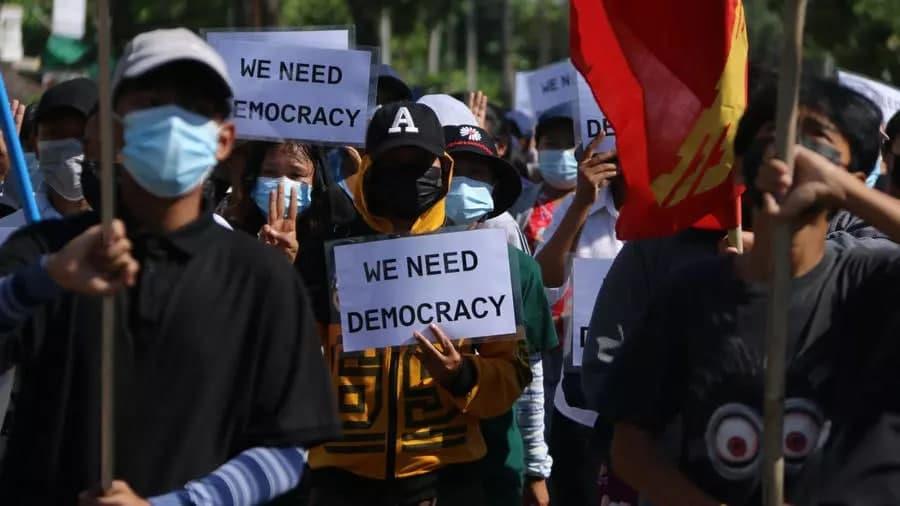YANGON, April 22 (AFP) - The Myanmar military's crackdown on anti-coup protesters has displaced close to a quarter of a million people, a United Nations rights envoy said on Wednesday (Apr 21).
The military government has stepped up its use of lethal force to quash mass demonstrations against a Feb 1 coup which ousted civilian leader Aung San Suu Kyi.
At least 738 people have been killed and 3,300 are languishing in jails as political prisoners, according to a local monitoring group.
"Horrified to learn that ... the junta's attacks have already left nearly a quarter (of a) million Myanmar people displaced, according to sources," UN Special Rapporteur on the situation of human rights in Myanmar Tom Andrews tweeted on Wednesday.
"The world must act immediately to address this humanitarian catastrophe."
More than 2,000 Karen people have now crossed Myanmar's border into Thailand and thousands more have been internally displaced, said Padoh Mann Mann, a spokesperson for brigade five of the Karen National Union, a rebel group active in Myanmar's mountainous eastern border regions.
"They all hide in the jungle nearby their villages," he said.
Free Burma Rangers, a Christian aid group, estimated at least 24,000 people were displaced in Karen state amid mortar ground attacks and airstrikes earlier in the month.
"Even though the airstrikes have stopped, the ground strikes have increased," Free Burma Rangers director David Eubank told AFP.
He said many of the thousands displaced were subsistence rice farmers and would experience future food shortages if they are unable to safely return home to tend to their paddies.
"You're looking at a six-month problem of no food," he said, adding that some people were sleeping in caves or under banana trees.
Eubank said there were daily airstrikes in Kachin state in the country's north and at least 5,000 people had been displaced in recent fighting.
Locals looking after the displaced people in some parts of Kachin state are worried about an upcoming shortage of food supplies.
"We currently have 980 people from 27 villages. At this moment, we have difficulties with food storage," Brang Shawng, a leader from a camp in Kachin state, told AFP.





